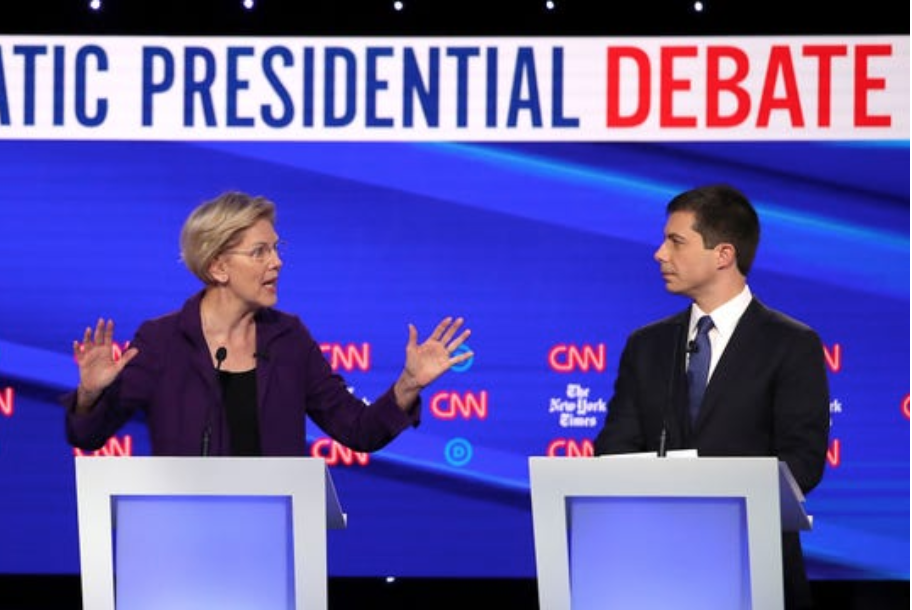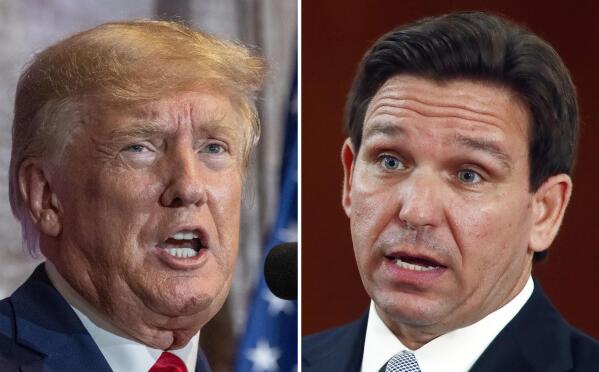
Elizabeth Warren has been steadily surging in the polls over the last few months, gaining 19 points between September and May according to a Monmouth University poll. On October 8, she emerged as the top Democratic frontrunner with a support rate of 26.6%, surpassing Joe Biden’s 26.4%. Her growing popularity turned her into a target in the fourth Democratic debate on October 15 where she quickly became the most attacked candidate on the stage.
When asked by moderator Marc Lacey whether she would raise taxes on the middle class to pay for Medicare for All, Warren replied that costs would go up for the wealthy and big corporations, and go down for the middle class. Unsatisfied by her response, Lacey pressured Warren to acknowledge that, like Bernie Sanders who introduced the bill, her endorsement of Medicare for All meant she would also raise taxes on the middle class. She nevertheless reiterated her answer: costs will only increase for the wealthy.
It was indeed, like Pete Buttigieg commented, “a yes or no question that didn’t get a yes or no answer.” It is not difficult to see why giving a definitive answer to this question would put Warren in a sticky situation. As Politico has pointed out, taxing the rich alone would hardly be enough to cover the trillions of dollars needed for the plan. It is also doubtful that alternatives such as cutting military spending and reducing benefits are viable options. Meanwhile, hinting at potentially taxing the middle class would be a tricky political move for Warren. She risks alienating the supporters who do so based on her promise to “rebuild the middle class.”
Warren’s unwillingness to admit the possibility of raising middle-class taxes is part of the long-standing tradition of economic liberalism and an aversion to taxes in American politics. However, the success of Bernie Sanders’ campaign has repeatedly challenged this mentality. Sanders has attracted a substantial and loyal base despite being vocal about raising taxes, and he has succeeded in doing so by emphasizing the fact that for the vast majority of the population, the amount they save would significantly outweigh what they pay in taxes. During the debate, when confronted with the same question on Medicare for All, Sanders pointed out that: “for virtually everybody, the tax increase they pay will be substantially less than what they were paying for premiums and out-of-pocket expansions.”
Warren is the only currently running candidate besides Andrew Yang who agrees with Sanders on Medicare for All. She advocates for the plan for the same reason of reduced costs, but costs are only part of the equation. Avoiding the tax question makes it ambiguous how overall costs after tax for the middle class would potentially be affected. This ambiguity might be politically costly. It could easily be interpreted as a lack of confidence in her own policy proposal or even a lack of genuineness and transparency, as suggested by Amy Klobuchar who said: “at least Bernie’s being honest here.”
In addition to Medicare for All, with her ambitious plans such as free public college and free universal childcare, Warren will always be confronted by the political threat posed by the tax question until she gives an unequivocal answer. As a candidate known for her progressive policies, such as a wealth tax on ultra-millionaires and a tax on corporate profits, Warren, like Sanders, has characterized herself as a champion of the masses who will hold the super-rich accountable. Despite her reservations about the consequences of raising middle-class taxes, she is in fact in a position to do so without undermining the populist political message that has appealed to many, given that the wealthy will be the ones who shoulder the overwhelming majority of the burden, and that the middle-class benefits overall.
In a political climate where democratic socialism has become mainstream and changing demographics have produced a new generation of eligible voters calling for more radical changes, the taboo of raising taxes for progressive Democrats like Warren has lost much of its power.
Lilian Wang



